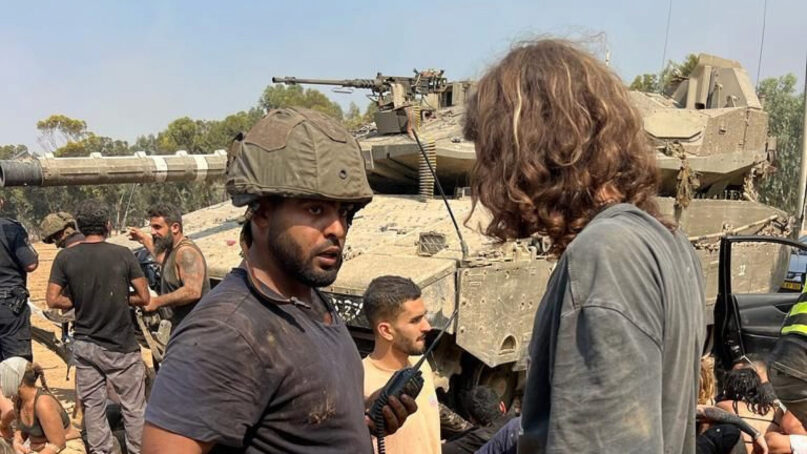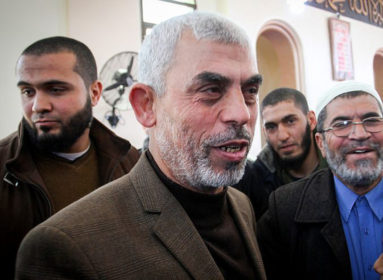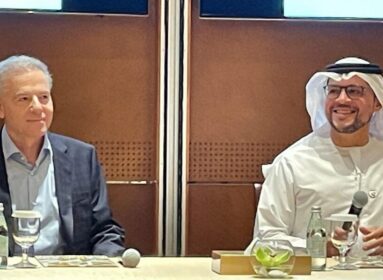
By Amelie Botbol
(JNS) “We were convinced we would die the whole time. We decided that we would save as many people as we could in the process,” said Neria Sharabi.
Neria, 22, together with his brother Daniel, 23, arrived at the Supernova Music Festival near Kibbutz Re’im, just over 3 miles from Gaza, at 1:30 a.m. on Oct. 6. They sat outside and had a few drinks before entering the festival site a couple of hours later.
“It was the biggest and most amazing rave I had ever attended in Israel,” Neria said of the event, which was attended by 3,500 partygoers.
The pair joined a group of friends, danced and mingled all night, blissfully unaware of what was about to happen.
“At 6:30 a.m., we started seeing rockets in the sky. Someone approached the DJ, who turned off the music and told us to disperse,” Neria recalled.
Like most Israelis, both brothers had served in the army, Daniel as a combat medic.
“We were in the process of packing up when I saw some of those who had left earlier come back with gunshot wounds. As a combat medic, I knew how to treat them. I immediately volunteered to help,” Daniel told JNS.
He quickly realized that the situation was more serious than he’d thought. As Hamas terrorists approached the site of the rave, security forces tried to block them. Eventually, they got through—and began targeting the revelers with machine guns and rocket-propelled grenades.
The Sharabi brothers fled toward the highway.
“At first we were all running in the same direction, but eventually we lost sight of everyone else we knew. Neria and I managed to stay together amid the chaos. Two of our friends, Itay and Ben, were killed by the terrorists,” said Daniel.
Another friend, Yosef-Haim Ohana, 23, was abducted and remains in Gaza over 80 days later.
Fighting back
“We ran on the road, jumped from car to car, carefully avoiding the shooting. Then, we saw a tank which had drifted to the side of the road,” said Daniel.
Daniel and Neria entered the tank. They first tried to alert the army via the tank’s radio, but in vain. Eventually, Neria seized an M-16 rifle off a dead soldier, exited the tank and started shooting back at the terrorists together with another two soldiers onsite.
“Quickly enough, people understood that we knew what we were doing. They came to take shelter behind the tank, which was the safest place near the site, while we fought back. I assisted those who needed first aid,” said Daniel.
Throughout the assault, Daniel was on the phone with his reserve commander, Yoni Skrisewsky, who helped the group organize their defense remotely.
While giving instructions to the Sharabi brothers over the phone, Skrisewsky departed from Tel Aviv to join the fight with another three reservists. On the way, Skrisewsky encountered more terrorists, and was only able to reach the site of the party five hours later.
“I was fighting from the left and the two soldiers who joined us were on the right. One had a machine gun, I had the M-16. We fought more than 100 terrorists as they tried to kill us,” said Neria.
“We were outnumbered and did not have enough ammunition to fight for hours. We made sure to shoot two bullets every 16 seconds. We used military tactics to stay alive for as long as we could,” he added.
While under fire, Daniel set tourniquets to prevent the wounded from bleeding to death.
Five hours later, the army arrived, and took another hour before the road was clear enough to evacuate the wounded.
’We were civilians fighting terrorists’
Some 364 people were murdered at the Supernova Music Festival event —nearly one-third of the 1,200 people killed by Hamas terrorists during their mass invasion of the northwestern Negev that Saturday morning.
Many were wounded, and at least 40 were taken back to Gaza as hostages. There were widespread reports of rape and sexual abuse, including gang rape.
The Sharabi brothers explained that their clarity of mind and quickness to take action came from witnessing the suffering of the wounded.
“We saw this girl with a hole in her leg. We instantly switched back into army mode. We blocked our emotions and used our minds rather than our hearts,” said Neria.
The Sharabi brothers saved dozens of revelers that fateful day.
“We had never fought a war. But even if we had, this was something different. We were not in uniform and this was not a combat zone. We were civilians fighting terrorists,” said Neria.
In response to the Oct. 7 massacre, Israel declared war on Hamas in Gaza. The Sharabi brothers were mobilized, but soon after the pair was sent back home to recover from the trauma.
“We came with emotions. It wasn’t the place. Our commanders were worried about us and sent us back,” said Neria.
’Our story blew up’
In early November, the brothers flew to the United States to speak about their experience.
“Our story blew up. We started fundraising for the survivors and the wounded of Oct. 7. Our objective is to make sure that everyone who survived the rave gets the treatment they need to build a life,” Daniel said.
Last month, Israel’s Justice Ministry told lawmakers at the Knesset in Jerusalem that “quite a few” of the survivors were forcibly hospitalized in mental-health institutions due to their harrowing experiences.
The day after, Neria said, was especially difficult for those revelers who were on drugs during the massacre and did not immediately internalize the trauma.
“I’m worried about the aftershock. I don’t want to see anyone I know on the news or get calls from friends saying that after all we’ve been through, they’ve committed suicide,” said Neria.
“This can be avoided if they get early treatment. We feel a commitment to them. This is now our duty,” he added.
’The world is quick to forget’
The Sharabi brothers have so far raised around $15,000 for their community. Earlier in December, the organizers of the Supernova Music Festival launched an exhibit at the Tel Aviv Expo recreating scenes of the assault of which the proceeds will go towards helping survivors of the attacks recover.
“We want to commemorate all the people that were killed on that day including security forces, police officers and medics. They sacrificed their lives for us. The world is quick to forget. We, the living, have to continue telling their stories,” said Neria
PHOTO: We the living
CAP: Daniel Sharabi (wearing helmet) and other Israelis regroup and treat the wounded after fleeing Hamas’s attack on the Supernova Music Festival at Kibbutz Re’im on Oct. 7. Credit: Court








 Southern New England Jewish Ledger
Southern New England Jewish Ledger













